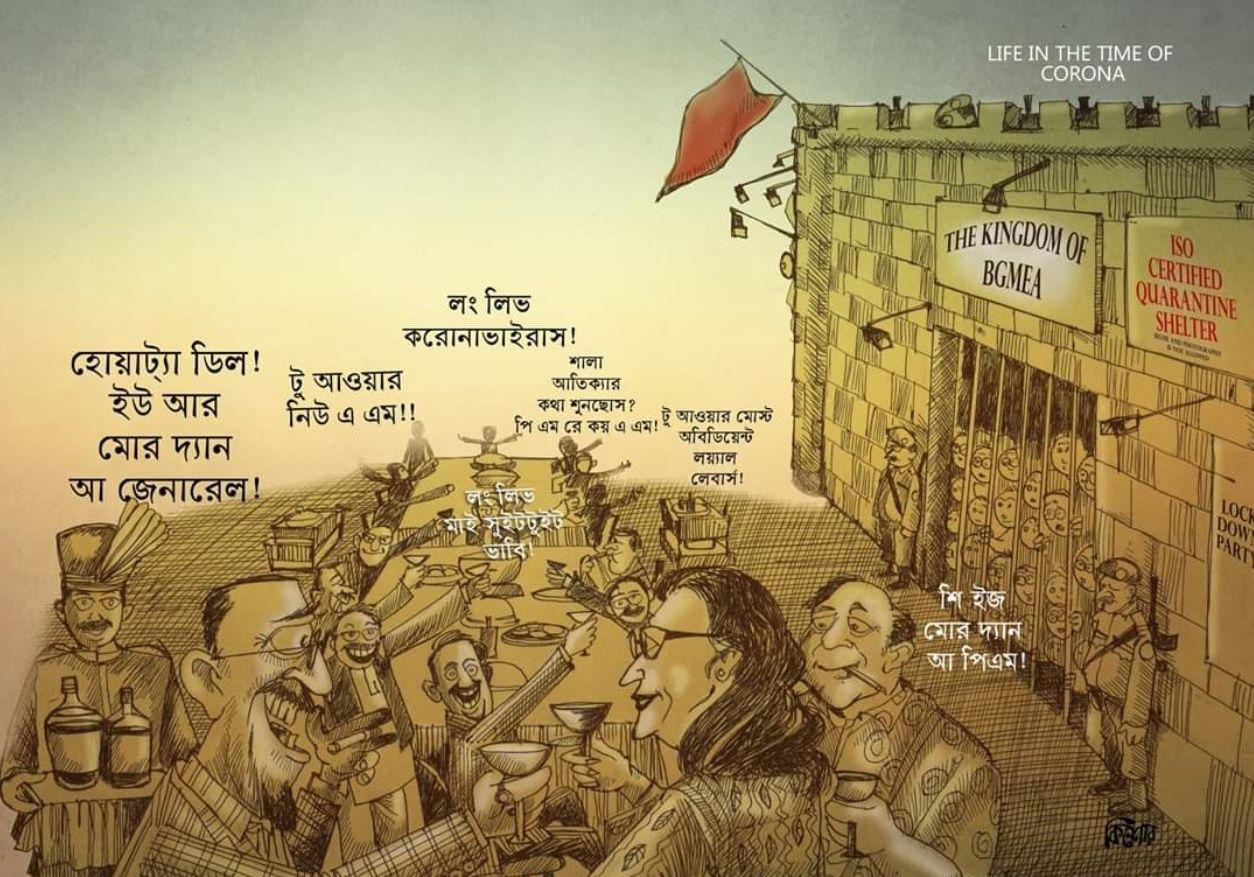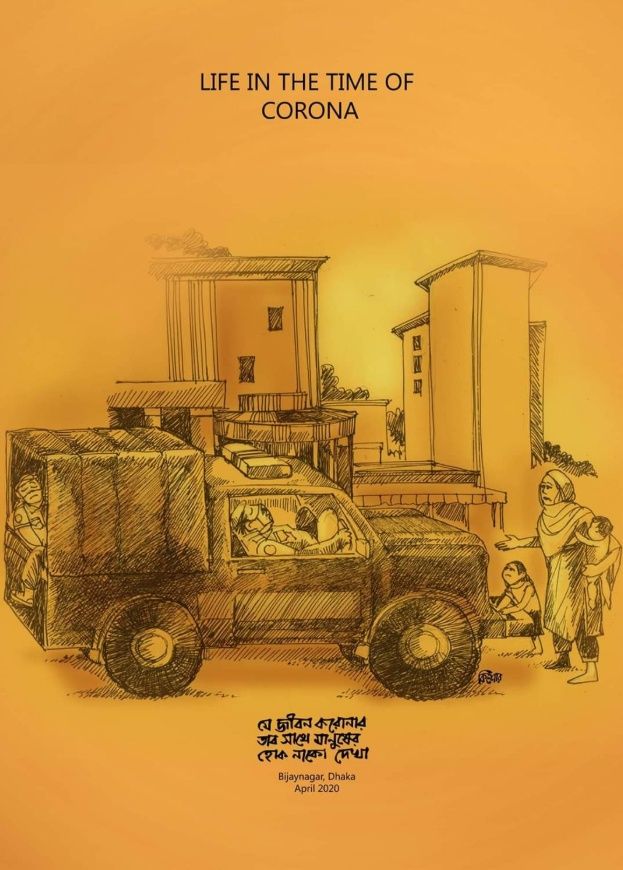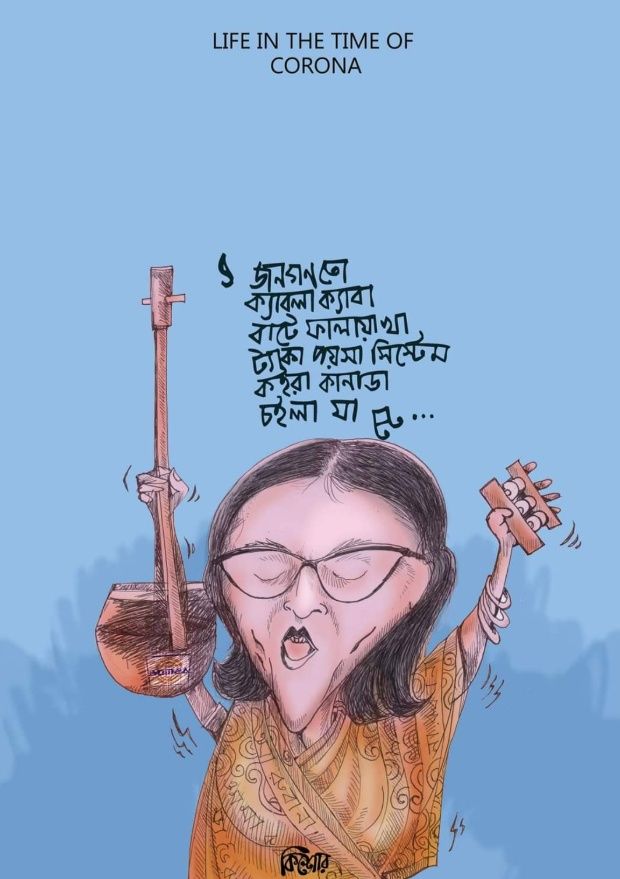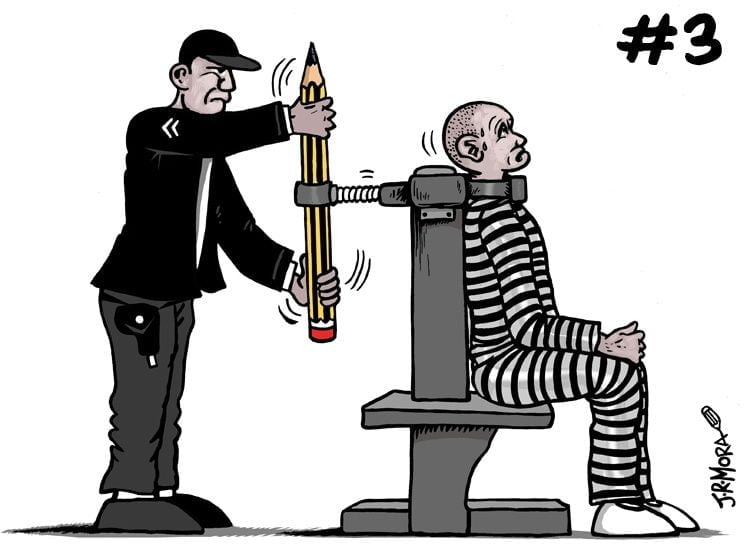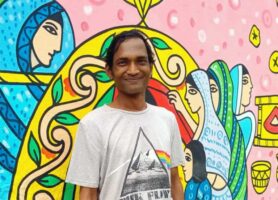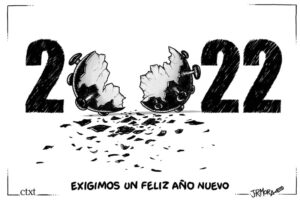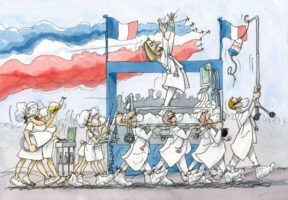One of the cartoons from the series "Life in times of coronavirus" by Ahmed Kabir Kishore (Bangladesh)
.
The Bangladesh Rapid Action Battalion (RAB ) arrested cartoonist Ahmed Kabir Kishore . Also arrested were writer Mushtaq Ahmed and two others, Didarul Islam Bhuiyan, an activist of a platform called "Rashtrachinta", and businessman Minhaz Mannan Emon, under the controversial Digital Security Law (DSA), which many claim is being used against freedom of expression.
They are accused of posting anti-government messages on Facebook and, according to some interpretations, of spreading hoaxes about the coronavirus pandemic. There is later talk of between 9 and 11 detainees, depending on who is telling the story.
The first news about the arrest of these people appeared on a couple of pages like this one . Shortly afterwards, different versions and readings of what had happened could be read on other media. Finally, the news was spread by in English by EFE.
According to the agency, in the words of the Dhaka police officer, Monirul IslamThese are the reasons for the arrest:
"They were posting on Facebook about our Father of the Nation, the Liberation War and spreading rumours about the coronavirus pandemic. They damaged the image of the country and the government and created confusion among the people about the pandemic".
In some of the cartoons in Ahmed Kabir Kishore s cartoons, among other things, point out and criticise the inequality and privileges of the elite, as well as some mistakes in the management of the health crisis due to the coronavirus pandemic in Bangladesh.
Source of the bullet points @ikhtisad
The thin line
When here, from some collectives, is proposed when some groups are calling for legislation to limit the spread of hoaxes by sanctioning companies, parties, institutions, the media or influencers who profit or benefit in some way from disinformation.
It is inevitable to recall cases in which this charter, supposedly full of good intentions, can end up being used by governments to curb fundamental freedoms and as a tool to silence legitimate criticism and opinions.
In any case, the crimes that should be proven to be the direct cause of the conscious dissemination of fake news must be clearly defined and delimited. Such as crimes against public health.
A good example could be Samoa. During the deadly outbreak of measles of 2019 was arrested a prominent (sic) local anti-vaccine activist. Edwin Tamasese was arrested on Thursday 5 November charged with incitement against government vaccination orders. He faced a possible jail term of up to two years.
Related, more than 140 cases in different countries.
Humour in trouble, a collection of cases (III)
Cases of cartoonists who have been in some serious trouble because of their cartoons or satirical illustrations. There are also some stories of other people who, without being cartoonists, have got into trouble for sharing them.
